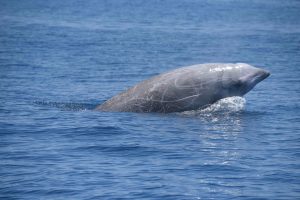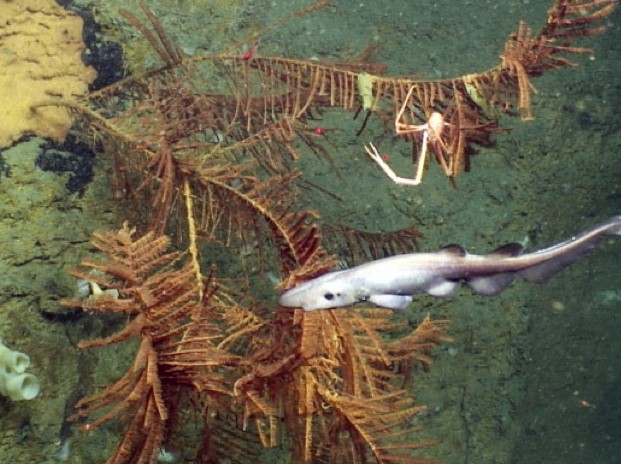Life in the Deep Sea Canyons Webinar Series Part 3 Full Remarks
Our third and final webinar of the series, “Life in the Deep Sea: Canyons as Important Whale Habitat” was held on November 5 from 1 – 2 PM and explored how two species of whales, the short finned pilot whale and the Cuvier’s beaked whale, use canyons along the Mid-Atlantic as well as conservation efforts.
OPENING REMARKS
Laura McKay, Program Manager for the Virginia Coastal Zone Management Program, welcomed the webinar participants, then introduced Kisha Santiago-Martinez, Deputy Secretary of State, New York Department of State. Ms. Santiago-Martinez’s remarks follow.
“Good Afternoon. I’d like to welcome everyone back for our final webinar in the series, “Life in the Deep Sea.” For those of you who missed either of our two previous webinars, you can view the recordings on MARCO’s website, which we will provide a link to in a follow-up email.
The Mid-Atlantic Regional Council on the Ocean, or MARCO as we are commonly referred to as, was established in 2009 by the Governors of NY, NJ, DE, MD and VA. These mid-Atlantic states create an interstate collaboration to address regional priorities and provide a collective voice on important ocean issues that transcend political borders. One such issue regards deep sea canyons, which run along the underwater coast of the Mid-Atlantic. On our past two webinars, we have learned about corals, crustaceans, and other unique species that permanently call canyons their homes. Today however, we will learn about how whales use deep sea canyons for only a portion of their lives. Although whales don’t live there permanently, they still rely on the resources of the deep sea. Marine animals that have long migrations can be particularly difficult to try to protect as many states, and even sometimes countries must come together to decide regulations that all parties can agree to.
I’d like to thank our two presenters who will cover these topics in detail, Dr. Howard Rosenbaum from the Wildlife Conservation Society and Dr. Andrew Read from Duke University Marine Lab. We appreciate the time and energy you’ve put in to make this webinar an interesting, exciting and informational experience.
I would also like to thank the MARCO staff and team who has been doing an incredible job bringing exciting research, images, and discussions together.
As well as the Gordon and Betty Moore Foundation for their support, which allows MARCO to continue working on collaborative projects.
In each of our webinars, we have provided a poll at the end of the meeting to gather feedback from you, our stakeholders, on what you would like to learn about in future webinars. There will be a chance to fill out the poll today but we will also send out the information in a follow-up email to ensure as many people as possible can voice their interest.
Before I hand things back over to Laura, I would like to extend one last thank you to all of you, attending today and those who attended our past webinars. The work MARCO does is for you, to keep you informed, interested and engaged. You are a big reason our webinars are successful and will continue in 2021.”
These remarks are intended to replace the beginning of the webinar which did not record properly.

Cuvier’s beaked whale surfacing after a long dive
Credit: http://awesomeocean.com
MARCO appreciates the support of the Gordon and Betty Moore Foundation for this webinar series.

Credit: Steve Ross, University of North Carolina Wilmington
